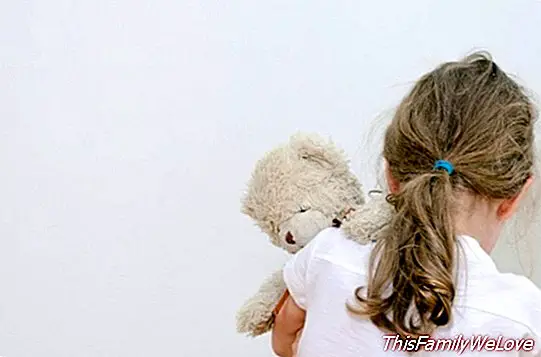Child maltreatment worsens health at maturity

The World Health Organization (WHO) defines the child abuse as "the abuses and neglect of those under 18, and includes all types of physical or psychological abuse, which may cause damage to the health, development or dignity of the child." Among the consequences of child maltreatment are the physical and mental health problems, negative social and labor effects. Now, in addition, we investigate these long-term effects.
Thus, according to the study cited in the last article of the Informational Network of Documentation on the Psychosocial Health of the Family, carried out by Eduardo José Cuestas Montañés, of the Faculty of Medical Sciences at the National University of Córdoba (Argentina) and Blanca Juanes de Toledo, pediatrician of the Madrid Health Service, there is evidence about the possible relationship between physical abuse, emotional abuse and neglect in childhood and its subsequent consequences on physical and mental health.
The effects of long-term child maltreatment on health
The multitude of existing studies makes the long-term effects of sexual abuse widely known. However, until now, the Negative consequences that non-sexual child abuse could cause on health, and even less, its long-term effects. Thus, this study becomes the first publication that manages, in a quantified manner, to establish a relationship between non-sexual child abuse and mental illness, behavioral disorders and somatic diseases.
Working to achieve this goal, data from 112 studies in developed countries were reviewed, considering all forms of child maltreatment as an important risk to health since they actually contribute to increasing the burden of diseases in all countries. Based on this idea, the results finally revealed a causal relationship between non-sexual child maltreatment and a variety of disorders such as:
- Mental disorders.
- Consumption of drugs.
- Suicidal behavior.
- Sexually transmitted diseases.
- Sexual risk behavior.
Finally, this study highlights the importance of taking measures that allow us to identify children at risk and, at the same time, encourage concrete actions that defend the youngest against abuse. Preventing and detecting cases of violence will therefore be essential, not only to eliminate their immediate effects on children, but also to safeguard their health, avoiding the possible long-term disturbances they cause.
The problems of social adaptation of abused children
In addition to health problems, the effects of physical abuse on the social adaptation of children have also begun to be examined, describing a series of interpersonal problems. Thus, authors such as Mueller and Silverman (1989) identified the two major consequences of abuse in interpersonal relationships:
1. Physical and verbal aggression in social interactions. First, the results indicated that those who suffer physical abuse "tend to show high levels of physical and verbal aggression in their interactions and, even, to respond with anger and aggression both to comrades who approach them amicably, as well as to that show signs of having a bad time. "
2. Withdrawal and avoidance of personal relationships. Second, these authors point out the existence of "a high degree of withdrawal and avoidance of interpersonal relationships on the part of the abused".
Patricia Núñez de Arenas




